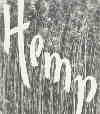
|
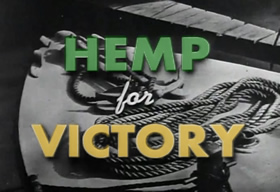 DURING THE SECOND WORLD WAR |

|
|---|
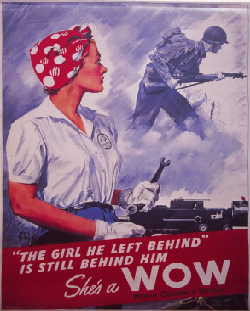
|
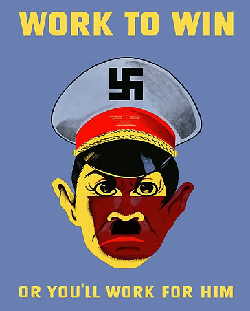 |
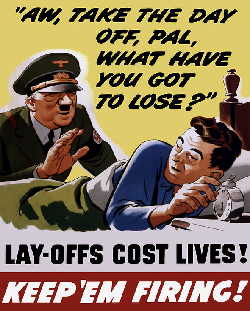
|
|---|
INDUSTRIAL HEMP DURING WW2
ITS LABOR TROUBLES:
While many of us would like to believe that the Hemp Industry was just great and everything was perfect and everyone was just in love with everything etc., It appears that the true was a bit more complex then that. In fact it was way-more complex, especially given the fact that Hemp production was seen (at the time) as a strategic war material. [meaning labor strikes were a no, no] And despite the fact that much of the backbreaking work historically associated with hemp production was now being done by machines. Still given the state of human nature, it is obvious that labor disputes were bond to happen.
Some of these labor conflicts were matters of serious concern (wages, treatment etc.,) while others were out and out hilarious in nature. Below we provide some examples. But always keep in mind that the labor shortage throughout the whole war, with employers so desperate they even began hiring Women (and children in some cases) to do work normally reserved for males in the past. And needless to say, they also started going way out of their way to keep employees happy. But again, given human nature, labor problems were bound to happen.
However, to begin with (and in all fairness), labor problems within the Hemp industry were anything but new. As this article appearing in the New York Times shows, labor problems in the Hemp industry have been going on since the mid-19th Century.
----------And no, this wasn’t a joke. The article really did appear in the “New York Times” way back when. However, moving on to more modern times. The following article shows us of a case where, it wasn’t so much the laborers, as it was the Hemp growers themselves who had objections to what, they considered to be a political appointee with little practical experience.
NEW YORK TIMES - (Feb. 17, 1887 p1)
MONKEYS TO BE BOYCOTTED
“Richmond. Ky., Feb. 16 (1887). -- J.B. Parkes, a substantial farmer living near Kinsgton, Madison County, has successfully trained a force of seven large monkeys to work in his hemp fields, and to break and prepare the hemp for market. They do the work more quickly and better than the negroes he formerly employed, and at about one-fourth the cost. It required about four months of patient work to train the animals, but they now do their tasks with rare intelligence. The monkeys were sent to Mr. Parkes by a brother who is in business in Cape Town, South Africa, and who had seen the animals put to similar used there. Mr. Parkes has sent for 10 more of the useful imitators of human workmen, six of them to be used by John G. Taylor, a neighboring farmer, who is also an extensive raiser of hemp.“
----------
----------Note that with an 90% unapproval rating, Mr. Wilson was obviously not the right boy for the right job, but he was a Democrat party hack and for those who gave him that plum job in the first place, that was good enough.
Freeport Journal Standard 1943-05-22p8
PROTEST AGAINST WILSON AS POLO HEMP MILL MANAGER IS HEARD
Oregon, ILL., May 22. (1943) —At least 90 per cent of Ogle county's hemp growers are dissatisfied with the appointment of Frank B. Wilson of Woosung as manager of the Polo hemp mill, a representative of the commodity credit corporation was informed here Friday.
The charge was made by Polo farmers before Fred Butcher of Danville, president of War Hemp Industries, Inc., a CCC branch, who came to Oregon to attend a meeting called at the request of individuals who have objected to the employment of Wilson, a former Democratic state representative from the tenth senatorial district.
Forrest Gillespie of Oregon, chairman of the Ogle County Agricultural Conservation association, said the meeting was arranged to permit a complete discussion of the management of the hemp mill and the Wilson appointment, and to seek an early settlement of the dispute which has arisen.
May Transfer Wilson
Polo Business men and hemp producing farmers participated in the discussion, and at the close of the meeting Butcher said he would attempt to reach a settlement by transferring Wilson to another midwest city as a hemp mill manager. In this event, he indicated, a manager now assigned to another location would be switched to Polo, and presumably would not be an Ogle county man. In their discussion with Butcher Friday, residents of the Polo area said one of their main objections to the appointment of Wilson was his reported refusal to co-operate in the campaign to sign hemp acreage in the county.
Reached at his Oregon farm home last night, Lee Gentry, of Oregon, head of the Illinois AAA office at Decatur, explained his own stand on the appointment of Wilson.
Gentry said he believed the principal objection to Wilson is the fact that he was not in close touch with the Polo hemp mill program in its earlier stages, and added that he agrees with the objections on this score. Gentry was inclined to discount the "politics" angle of the dispute as secondary.
"I have known Frank Wilson for a long time as a good farmer and an excellent business man," Gentry asserted, "and believe that under other circumstances he would have made a good manager.”
----------
Our next tale is a bit more interesting as it deals with either:
- Axis Sabotage at a war plant
- Stupidity, or Bobo the farm worker forgot something
- An Axis POW (Prisoner Of War) escape plot
- And yes, a possible a labor dispute
----------MUSEUM NOTE: Before the war much of our better stalks of raw hemp originated from Italy. Thus it was nature to make use of Italian POW’s to help out with our hemp crops. That plus the fact that most Italians really didn’t want to have anything to do with Mussolini’s war, not to mention the labor shortage. --- Well that plus the idea of permanent immigration into the U.S. after the war made it most unlikely that it was the Italian POW’s that were responsible.
Waterloo (Iowa) Daily Courier 1943-12-24p16
FBI INVESTIGATES SHELL INCIDENT AT TRAER HEMP MILL
ATTEMPT TO SABOTAGE WAR EFFORT IS SEEN.
Traer, Iowa.—A possible case of sabotage in the Traer community, has been under FBI investigation t** last week at the federal hemp mill after six shotgun shells were found in a bundle of hemp which was being unloaded at the mill sit.
The hemp had been tied on the Herman Strobehn farm, west Traer, by land by a group of Italian war prisoners the day before and was being hauled and unloaded by a local trucking firm.
On finding the shells the Tarer county sheriff's office notified the FBI and a representative has been investigating. He did not tell the hemp officials any of his findings.
As the war prisoners have-be very co-operative in their own here hemp mill officials find it difficult to believe that they had anything whatsoever to do with ** .
They feel that it is much more likely that someone else placed the shells in the hemp in order to throw suspicion on the prisoners, to sabotage the hemp program or both..
If the shells had not been found it is possible that they would started a fire in the mill as the hemp was being processed.
----------
And while the thought of Axis saboteurs does cross ones mind (maybe Anslinger himself), still it seems rather odd, given the number of other (much) high value targets at the time, that one of their agents would go to all the trouble of doing so.
Thus the only reasonable possibility lies with Bobo the farm worker, who either dropped the bullets in there by accident or had it in for his boss and decided to get even.
---------------------
Our next examples, all deal with fires/explosions that broke-out at privately owned hemp mills. Note that these are three different case examples:
----------Were they started by accident or as part of a labor dispute is irrelevant, that everyone got a few days off (probably with pay) is.
Madison Wisconsin State Journal (1942-03-15p18)
HEMP MILL WORK RESUMES 46 DAYS AFTER EXPLOSION
BEAVER DAM—The J. LeRoy Farmer hemp mill in this city resumed operation Saturday just 46 working days after the explosion and fire nearly destroyed the plant.
The plant was rebuilt and new machinery has been installed. Manager D. E. U'Ren said Saturday that he will employ two 24-men shifts to take care of the 1941 crop. It s expected that the plant will operate until June.
----------
Wisconsin Rapids Daily Tribune (1943-03-05p2)
BATTLE STUBBORN FIRE AT JUNEAU HEMP MILL
Juneau, Wis. —(JP)— Firemen from four communities battled for three hours last night before bringing a stubborn fire at the Atlas hemp mill under control. Officials said they believed the blaze might have been caused by sparks.
One large stack and two smaller piles of hemp stored m the mill yard were destroyed, but another large stack outside was saved.
Officials said damage to the mill proper was slight.
Firemen from Juneau, unable to cope with the blaze, were assisted by departments from Horicon, Hustisford and Clyman.
----------
Wisconsin Rapids Daily Tribune (1944-01-31p8)
$35,000 DAMAGE IN FIRE AT HEMP MILL
Beaver Dam, Wis. — (AP)—Fire swept through the mill room and warehouse of the J. LeRoy Farmer Hemp mill here Saturday afternoon causing a loss which Supt. D. E. U'Rren estimated at $35,000.
The first, cause of which has not been determined, started in a scutcher drum in which the fiber is cleaned and combed. U'Rren said that the blaze flashed through the mill room and spread to the warehouse wing with such rapidity that the workers, using extinguishers, were unable to cope with it. The Beaver Dam fire department, assisted by mill workers, fought the blaze, fire walls prevented it from spreading to the office and dry kilns.
----------
Next, here we have a case of a full-blown labor dispute:
----------
Madison Wisconsin State Journal (1944-06-08p17)
37 MEN CONTINUE HEMP MILL STRIKE
BEAVER DAM—There was no change today in connection with the labor situation at the LeRoy Farmer hemp mill. Eighty employees went on strike Saturday when the management was unable to comply with a demand for an immediate wage increase from 55 to 60 cents per hour.
The 60 cents rate has the approval of the mill-manager but must be approved by the War Labor Board before it can become valid. Wednesday 43 of the employees reported for work, the balance of the men are still out.
----------
POSTSCRIPT:
Overall the idea of this section was not to dramatize, however, we must keep in mind that, we have seen that while labor relations during the war were not perfect, given the large numbers, problems were actually quite few in number.
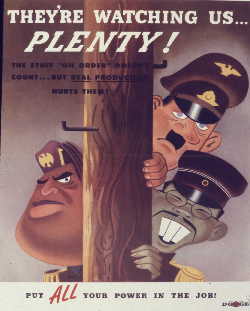
|
 |
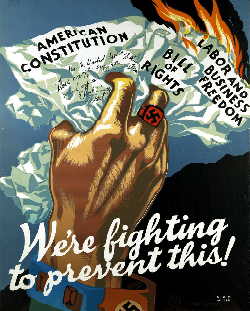
|
|---|
WANT TO KNOW MORE:
=====================
Due to space / download time considerations, only selected materials are displayed. If you would like to obtain more information, feel free to contact the museum. All our material is available (at cost) on CD-Rom format.
CONTACT PAGE
 BACK TO SECTION IV |